Cohort 2.2 is the second group of students in BioMed2. They started in October 2023 and you can read about their research projects below.

Rhiannon Cummings
The contribution of mitochondrial dysfunction to Alzheimer’s disease
I am joining the GW4 DTP programme having completed my MSc in Translational Neuroscience as a JAT scholarship student at Imperial College London. Here, my research focussed largely on pathological astrocyte states and their transcriptomic landscapes, as well as their association with oxidative stress and neuroinflammation. My PhD project will continue in my field of interest, with a focus on mitochondrial dysfunction in Alzheimer’s disease and its underlying genetic component. I will be based in Dr Gaynor Smith’s lab in the Dementia Research Institute in Cardiff University, and will collaborate with Dr James Hodge in the University of Bristol.

Meng Du
Accelerated prediction of virulence and antibiotic susceptibility for bacteria causing bloodstream infections using MALDI clinical diagnostics
I developed an interest in bioinformatics during my undergraduate studies at Southwest University, China, when I used CRISPR/Cas9 for zebrafish. I then pursued a Master’s degree in bioinformatics at University of Glasgow, working on a single-cell RNA sequencing trajectory inference project that I continued as a research associate after completing my degree. Following that, I finished a Master’s degree in Data Science at Birkbeck, University of London, focusing on ML projects. I had then spent 1.5 years as an informatics scientist working in a small molecule drug discovery company. For my PhD, I am based in University of Bristol, under the supervision of Professor Andrew Dowsey. My research revolves around Antimicrobial Resistance. I will focus on using novel ML approaches to detect bacterial types associated with enhanced virulence and resistance from routine MALDI mass spectrometry data, and develop and validate the approach for clinically important bacteria.

Kirsty Emery
Control of mucosal immunity and intestinal integrity by human gamma/delta T cells
I graduated from Coventry University with a BSc in Biomedical Science, before gaining an MSc in Pharmaceutical and Biopharmaceutical Formulations from the University of Sunderland. Since then, I’ve been employed at UKHSA and its predecessors as a research scientist in infectious diseases, working on a number of projects in vaccine development, assay development and histology. My PhD project aims to better understand how γδ T cells control CD4+ T helper cell responses in human blood and the gut mucosa.


Beth Ferris
Generating killer cells for immunotherapy against cancer and pathogens
I completed my undergraduate degree in Medical Sciences at the University of Exeter. It was here that I found a passion for immunology. I went on to complete my MSc at Cardiff University in Applied and Experimental Clinical Immunology. During my MSc, I completed a project with Professor Edward Wang and his group on highly functional Adaptive Natural Killer (NK) cells in healthy individuals positive for cytomegalovirus. My PhD project at Cardiff University, continues the work I started with Prof Wang during my MSc and aims to explore how these adaptive NK cells could be utilised to combat infection and cancer.
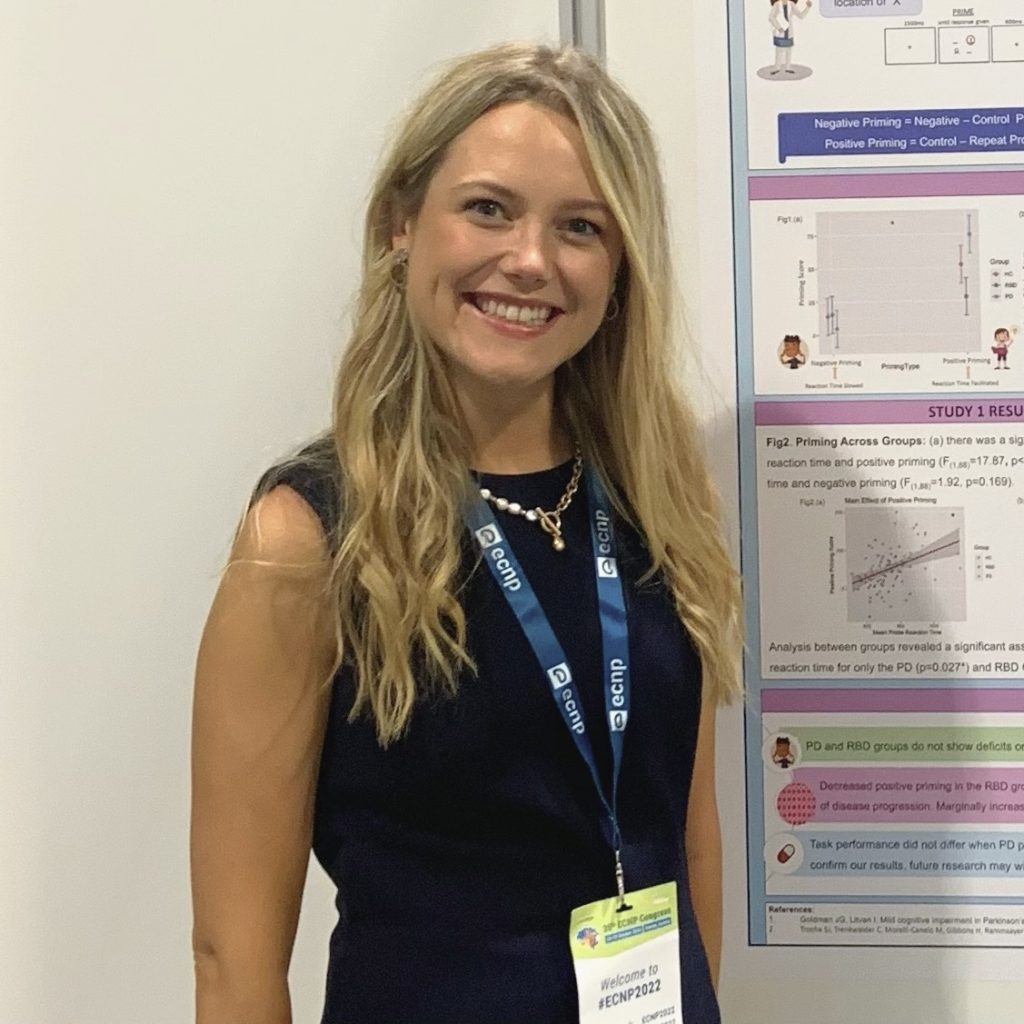

Sorcha Hamilton
The Effects of Cannabis on Adolescent Brain Structure and Epigenetic Ageing
My PhD project will seek to examine the effects of cannabis on adolescent brain structure and epigenetic ageing, under the lead supervision of Dr Tom Freeman at the University of Bath. I gained a strong interest in cognitive developmental science whist studying a BSc Neuroscience at St Andrews, which I followed with an MSc Neuroimaging at King’s College London, to learn how techniques such as (f)MRI help us to better understand the brain. I have since worked as an RA at the University of Oxford in the Departments of Experimental Psychology (Decision Making and Action; Professor Matthew Rushworth) and Psychiatry (Psychopharmacology and Emotion; Professors Catherine Harmer and Susannah Murphy). This work afforded me experience with neuroimaging techniques, with adolescents, and with clinical trials using a spectrum of drugs; from licensed anti-anxiety medication to ketamine. Thusly, I honed a personal interest in the effects of drugs on the developing adolescent brain.


Lisa Hobson
Using human genetics to identify novel biomarkers for enhanced prediction and early detection of cancer
After completing an undergraduate degree in Forensic Science (Biology), I completed a Masters of Research looking at targeting ERG-positive prostate cancer with splice-switching oligonucleotides. My MRes project gave me the opportunity to contribute to the research paper titled “Targeting the ERG oncogene with splice-switching oligonucleotides as a novel therapeutic strategy in prostate cancer” which has been published in the British Journal of Cancer. My PhD project, under the supervision of Dr. Philip Haycock at the University of Bristol, will use Reverse Mendelian randomisation to identify plasma protein markers to improve cancer prediction models utilising data from the UK Biobank study.
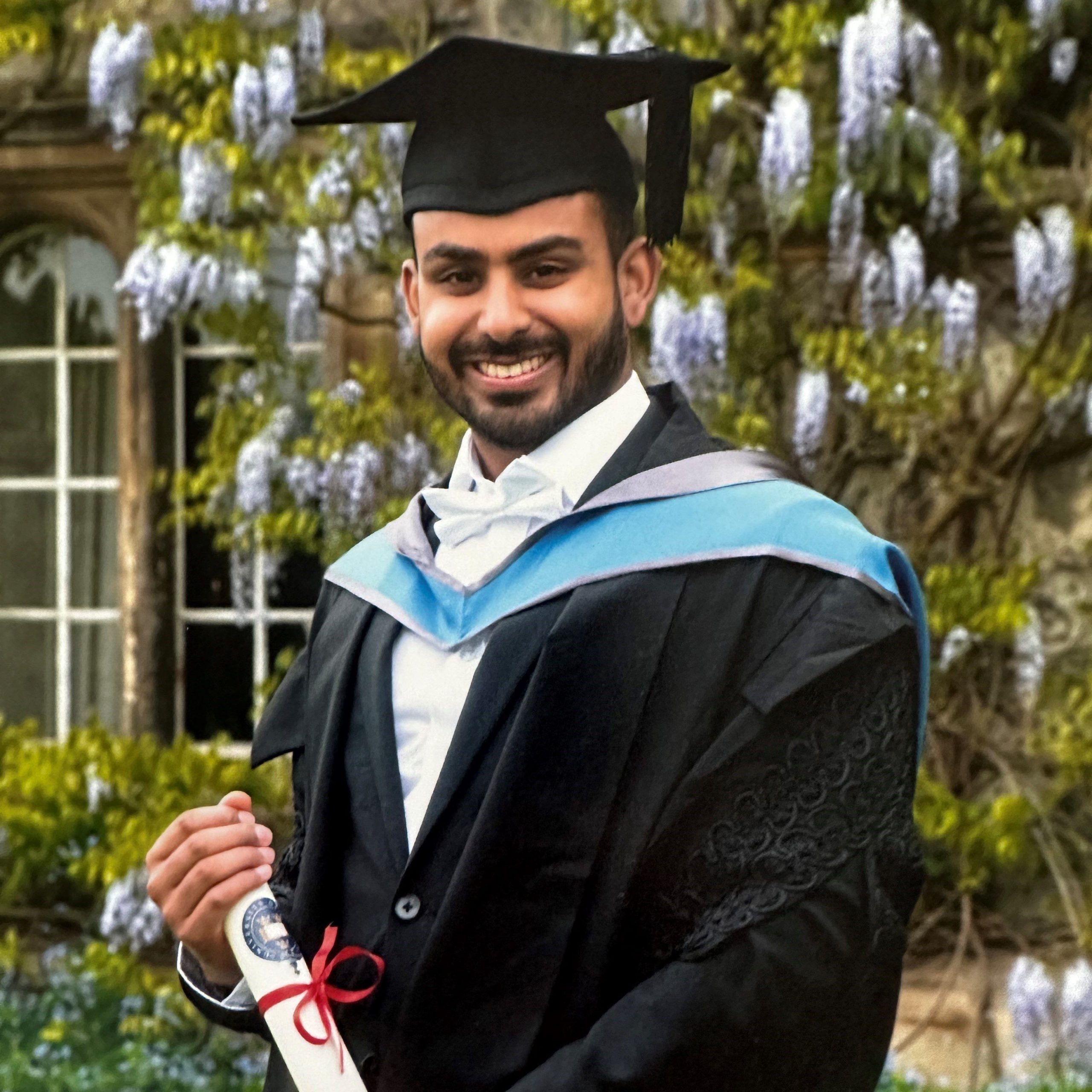

Amir Khan
Investigating senescence in osteoarthritis
I graduated BSc Biomedical Sciences from the University of Birmingham and went on to complete a MSc by Research in Molecular and Cellular Medicine in the lab of Dr Alex Clarke, at the Kennedy Institute of Rheumatology, University of Oxford. Here, I focused on amino acid metabolism in B cells. I have then worked in biotech and more recently as a research assistant, in the lab of Prof Georg Hollander, working on understanding the thymus on a molecular and cellular level. Having a strong interest and background in immunology and cellular metabolism, my PhD with Prof Chrissy Hammond and Dr Bernadette Carroll will focus how “zombie cells” differ from healthy cells, in terms of metabolism, growth and survival, and whether this could be prevented or reversed in osteoarthritis.




Shannon Lacey
Run for Your Life: Leveraging Exercise to Protect Against Dementia
My PhD project focuses on the disruption of body clocks in Alzheimer’s disease and investigates whether scheduled exercise can be used as an intervention to protect sleep-wake cycles, appetite regulation and cognitive function. Using a mouse model of Alzheimer’s disease, I will assess how scheduled exercise impacts the brain at a structural, physiological, and molecular level. Before starting my PhD, I completed an MSci in Neuroscience at the University of Bristol. I will be based across the University of Bristol and the University of Exeter during my PhD, split between both Prof. Hugh Piggins’s and Prof. Jon Brown’s labs.
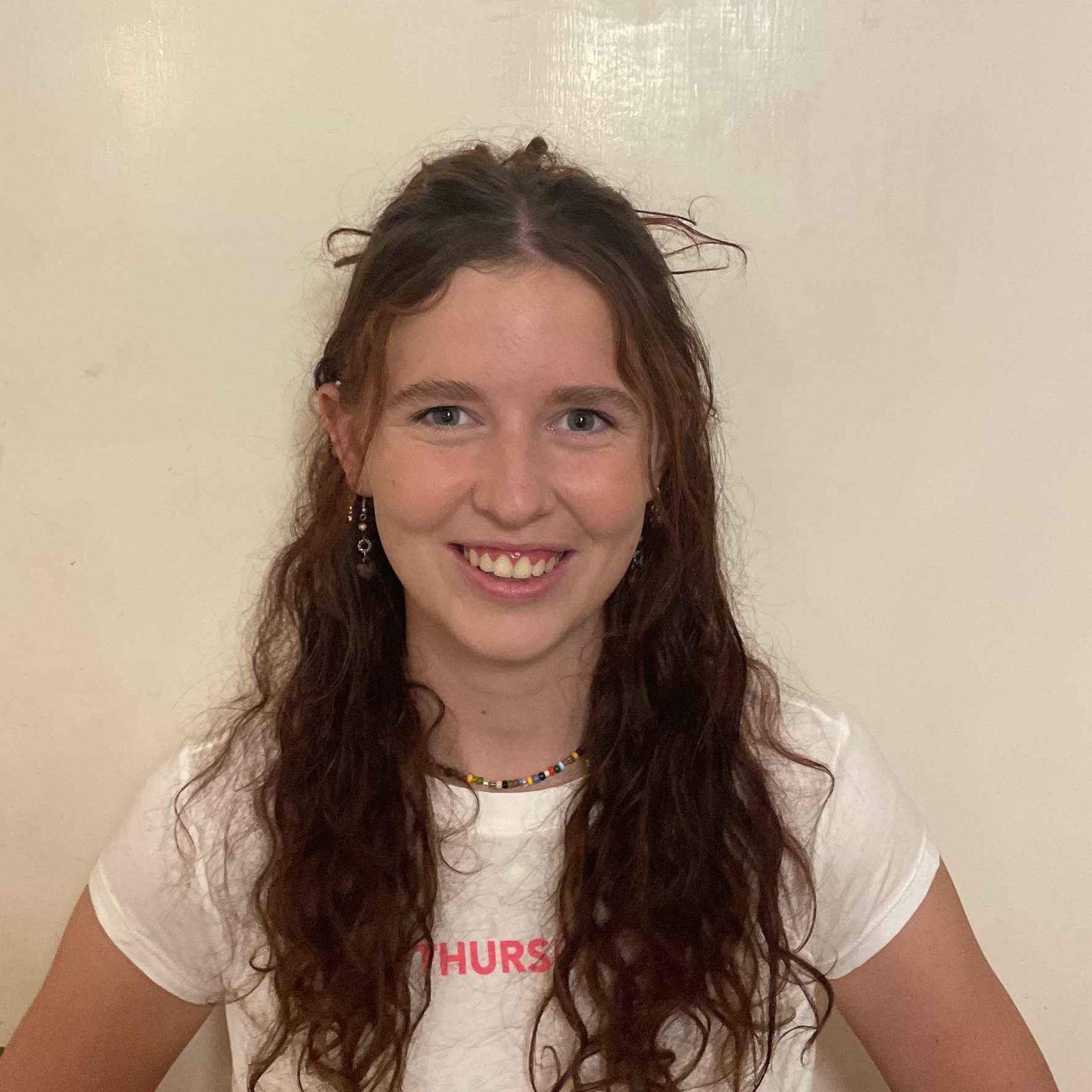

Annie McShane
Sex Differences in Chronic Pain
I graduated from University College London in 2022 with an MSci in Biological Sciences. My dissertation focused on sex differences in Battens disease, a form of childhood dementia. I explored the reasons and implications of a lack of female model organism representation in preclinical research. My PhD, under the supervision of Dr Robert Drake at the University of Bristol, will explore sex differences in chronic pain. Chronic pain is much more common in women and my project will investigate whether differences in brain noradrenergic signaling underpin the sex differences.
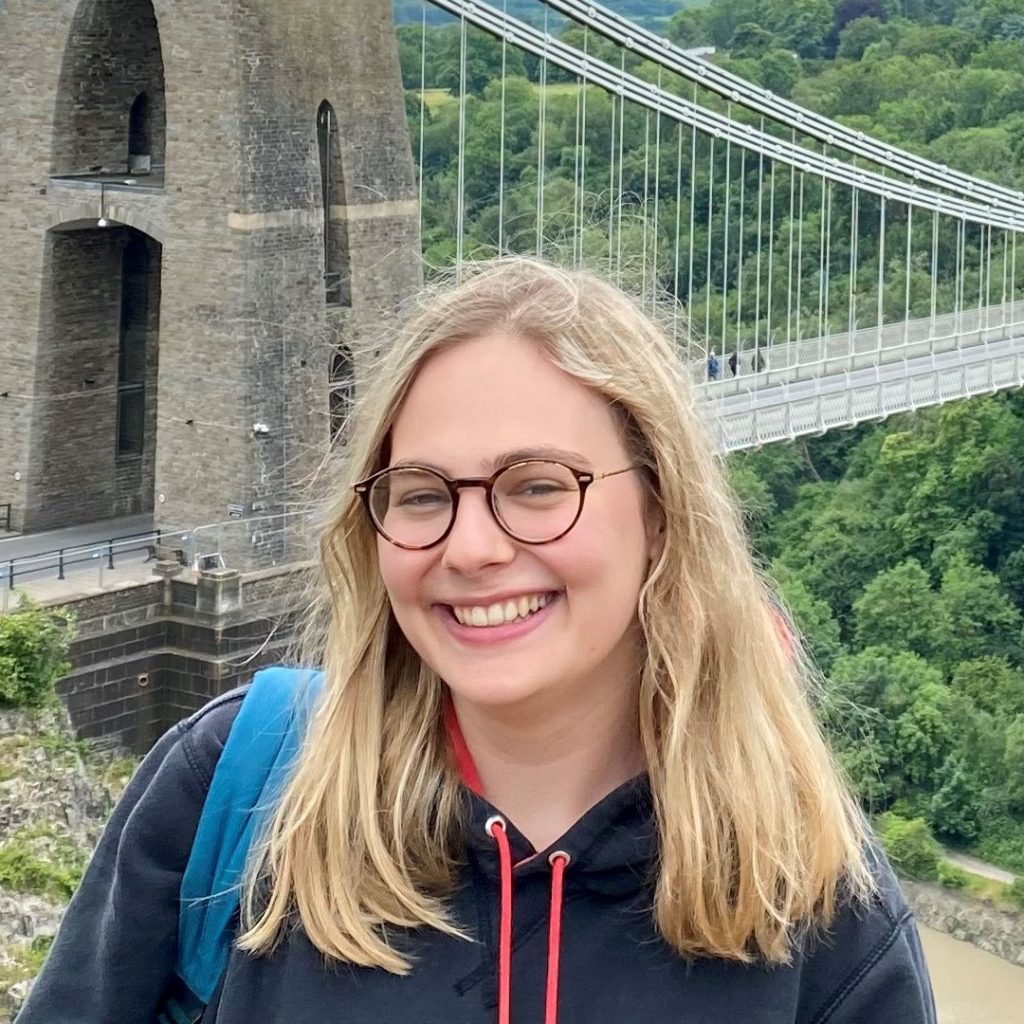

Poppy Miller
Sticky but not sweet: deciphering how Streptococcus bacteria drive clot formation and heart disease
I graduated from the University of Bristol in 2022 with a Cellular and Molecular Medicine MSci. After my MSci, I worked in the University’s Flow Cytometry Facility and gained a valuable understanding of flow cytometry and cell sorting. Working under the supervision of Dr Angela Nobbs at the University of Bristol Dental School, I will be investigating how Streptococcus bacteria can cause a severe form of heart disease, infective endocarditis (IE), which carries a high mortality rate. Specifically, I will focus on how bacterial surface protein PadA can interfere with the immune and coagulation systems and its potential as a therapeutic target to combat IE. My PhD offers me the opportunity to look at the relationship between pathogen and host immunity, delve into structural biology to decipher the structure of PadA, and put my flow knowledge into practice by devising a panel screen for PadA in clinical isolates.




Chloe Moscrop
Identifying immune mechanisms and testing new therapeutic targets for inflammatory arthritis and associated comorbidities
I completed my undergraduate degree at Swansea University, studying an integrated masters in Medical Biochemistry. Here, my masters thesis investigated the role in CD8+ T cells in anti-viral immunity during pregnancy. After completing my masters I accepted a role at the University of Oxford, researching the immunogenetics of CD4+ T cells in Inflammatory Bowel Disease (IBD). In this role I utilised molecular and genetic techniques to try to identify novel pathogenic pathways in IBD. Now with a passion for T cell immunology, I’m continuing to explore my research interest, the role of CD4+ T cells in autoimmune diseases, through my PhD project at the University of Bristol, investigating the role of CD4+ T cells in inflammatory arthritis and its associated comorbidities. During this project I will identify shared immune mechanisms in ocular and cardiovascular tissue during experimental inflammatory arthritis and target those identified to assess their affect on CD4 pathogenicity and arthritis induced comorbidities.


Mike Nsubuga
Using machine learning to facilitate rapid and efficient responses to gastrointestinal disease outbreaks
I completed my Master’s in Bioinformatics at Makerere University, Uganda funded by the National Institutes of Health(NIH-Fogarty) where I focused on assessing the applicability of Machine Learning models in predicting antimicrobial resistance in low-middle-income countries. Concurrently, I held a position as a Research Fellow for the SickleInAfrica consortium based at University of Cape Town assisting in implementation of cross-consortium research. I will be starting a PhD at the University of Bristol funded by the Medical Research Council(MRC) under GW4 BioMed2 MRC DTP under the the Population Health theme. My project under the supervision of Prof Kristen Reyher, Dr. Sion Bayliss, Prof Andrew Dowsey and Dr Lauryn Cowley will center on collaborating with the UK Health Security Agency(UKHSA) to develop cutting-edge machine learning tools aimed at forecasting outbreaks of foodborne diseases. These tools will be used to support public health decision-making and facilitate rapid response to future outbreaks.
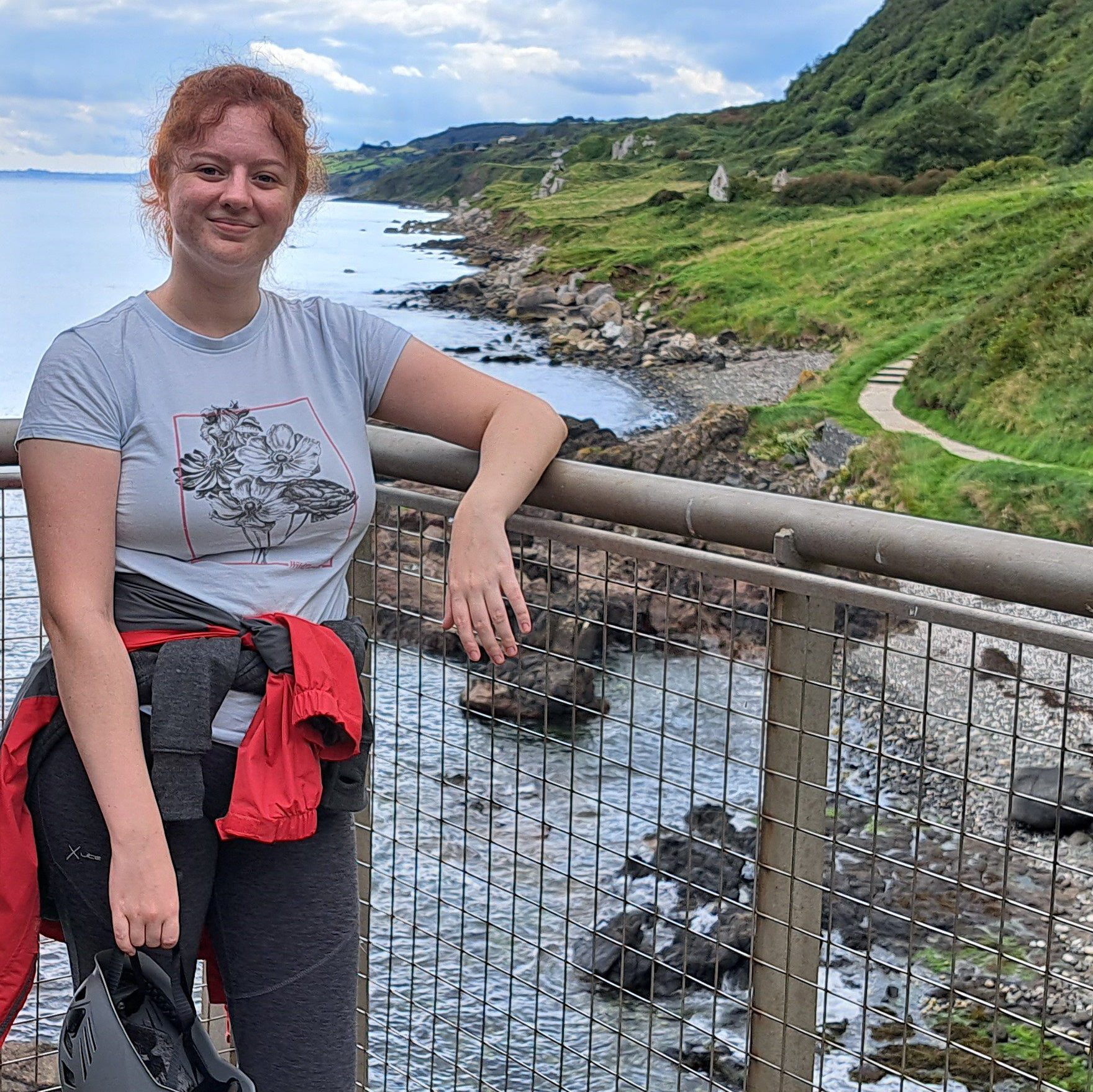

Eleanor Pearson
Pharmacological targeting of AMP-activated protein kinase for immune cell regulation in Type 1 Diabetes
I completed my Integrated Masters Degree at the University of York, studying Biomedical Sciences. I was also fortunate enough to complete an Industrial Placement Year, working at the Novartis Institute for Tropical Diseases to characterise the changes in plasma cytokine concentration during the acute phase of T. cruzi infection in mice. My research skills were further supplemented by my final Masters-level research project, which involved investigating the therapeutic potential of small-molecule compounds to reduce MALAT1 expression in CD4+ T cells. My time at York helped grow my passion for immunology and autoimmune conditions, which I will put to good use in my research project at Exeter, working under the supervision of Dr Craig Beall. My research will aim to identify novel therapeutic mechanisms by which the autoimmune destruction of pancreatic beta cells – characteristic of type 1 diabetes – might be dampened, with the goal of improving the quality of life for the millions of people living with type 1 diabetes globally.


Ebba Qviberg
Escaping host immunity: Characterising immune evasion mechanisms employed by the bacterial pathogen Staphylococcus aureus
I hold a BSc in Biomedical Laboratory Sciences and an MSc in Infection Biology from Uppsala University, which have enhanced my expertise in infectious diseases. Following my MSc degree, I worked in industry with Sysmex Astrego and Galderma, focusing on developing antimicrobial susceptibility testing assays, where I developed my clinical diagnosis and dermatological research skills. I am interested in research targeting interactions between bacterial virulence factors and host immune mechanisms. In my PhD project, I will focus on understanding how Staphylococcus aureus evades the complement system, a critical defence against microbial invasion. Given the rising antibiotic resistance in S. aureus isolates, I aim to uncover the mechanisms behind its complement evasion, offering potential insights for novel therapies to fight against S. aureus infections.


Sara Rapuc
Early predictors of cognition in children cooled for neonatal hypoxic-ischaemic encephalopathy
I obtained a BSc in Psychology from the University of Ljubljana, followed by an MSc in Neuroscience and Cognition at Utrecht University. My academic interests have always revolved around the intersection of brain and child development, particularly within high-risk groups of children. In my previous research, my primary focus was on identifying factors that can predict cognitive and motor development in preterm-born children, as well as how various cognitive abilities are interconnected in these children. My PhD project at the University of Bristol will center on uncovering early predictors of cognition in children who have undergone hypothermia treatment for hypoxic-ischemic encephalopathy. Specifically, my research will investigate potential predictors such as early motor skills and functional brain connectivity.


Amelia Rice
The natural environment and depression: triangulating the role of stress biomarkers across geographically diverse regions
I completed my BSc at the University of Warwick and then pursued a Masters in Epidemiology at the University of Bristol. I developed an interest in population health sciences through my undergraduate degree, however living in China in early 2020 and watching everything unfold with the Covid-19 Pandemic I realised the importance of understanding the way diseases can impact society, this led me to my master’s course and now here. My PhD will focus on measures of the natural environment, and I am hoping to gain insight into how different interactions with the world around us can impact our mental health.


Will Wheatley
I am studying my PhD in the Pickering Lab in Bristol, under the supervision of Dr Michael Ambler. My work will focus on mammalian torpor; exploring the neural networks that control torpor as a response to the external environment as well as exploiting these networks to induce torpid like states in animals that cannot do so naturally. My background in Psychology means I am also interested in cognitive states and behavioural changes during and after torpor, particularly when artificially induced.
